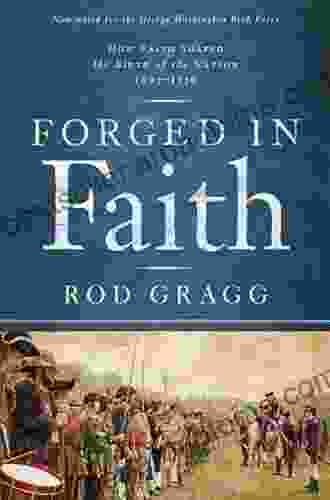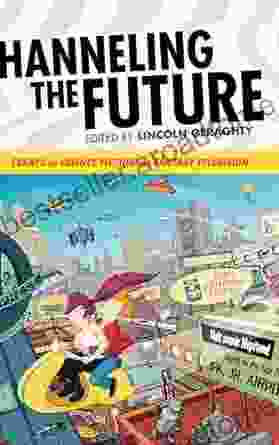How Faith Shaped the Birth of the Nation: Exploring the Spiritual Journey of America's Founding Fathers

The Puritan Ethos and the Founding of America
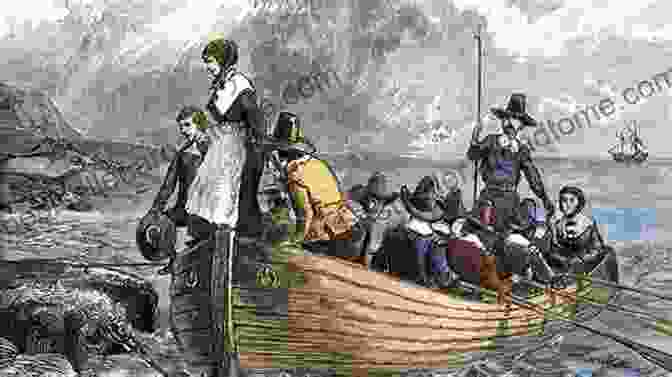
The arrival of the Puritans in America in the 17th century marked a pivotal moment in shaping the nation's religious and political landscape. Hailing from England, these devout Calvinists were driven by a deep faith that permeated every aspect of their lives, including their approach to governance.
4.8 out of 5
| Language | : | English |
| File size | : | 2336 KB |
| Text-to-Speech | : | Enabled |
| Screen Reader | : | Supported |
| Enhanced typesetting | : | Enabled |
| Word Wise | : | Enabled |
| Print length | : | 276 pages |
The Puritan ethos emphasized the sovereignty of God, the importance of personal piety, and the duty to create a society that reflected biblical principles. This belief system manifested itself in the establishment of a theocracy in the Massachusetts Bay Colony, where religious and civic affairs were closely intertwined.
The Puritans' faith influenced not only their own colony but also the broader development of the American colonies. Their emphasis on education, literacy, and moral conduct laid the groundwork for a society that would prioritize intellectual and spiritual growth.
The Great Awakening and the Revolution
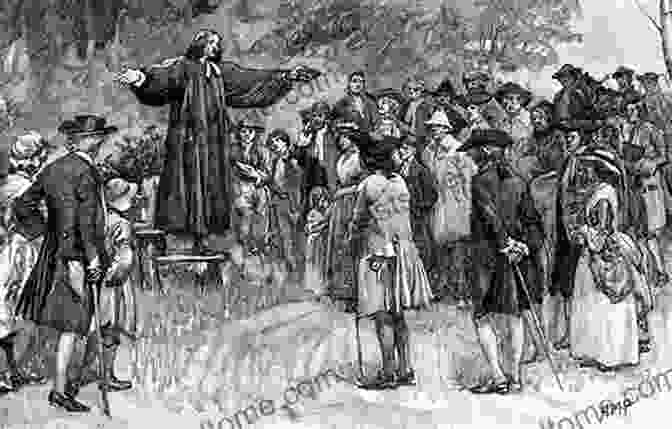
The mid-18th century witnessed a religious revival known as the Great Awakening. This movement swept across the colonies, igniting a renewed fervor for Christianity. It also had a profound impact on the growing sentiment for independence from British rule.
Evangelical preachers like Jonathan Edwards and George Whitefield urged their followers to reject the established Free Download and embrace a direct, personal relationship with God. This message of individual liberty and self-determination resonated deeply with many colonists, who began to question the authority of the British monarchy.
The Great Awakening played a catalytic role in fostering a sense of unity and purpose among the colonists. It also provided a moral and spiritual justification for the pursuit of independence. Many revolutionaries saw their struggle against British oppression as a battle for religious freedom and the right to worship according to their own conscience.
The Declaration of Independence: A Faith-Based Proclamation
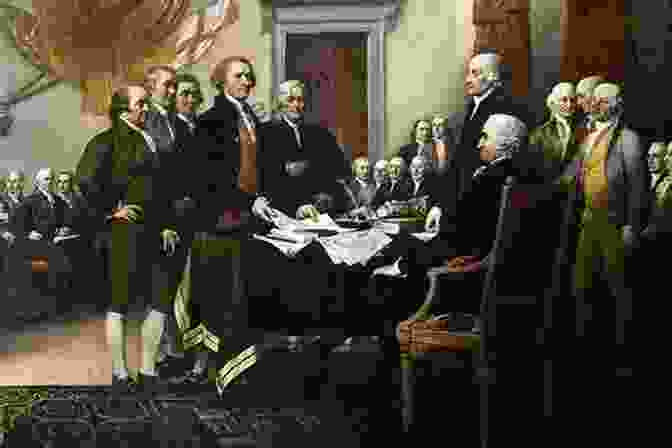
The Declaration of Independence, the seminal document that declared the colonies' separation from Great Britain, bears the imprint of the Founding Fathers' religious beliefs. The preamble invokes "the laws of nature and of nature's God" as the foundation for human rights and the authority to establish a new nation.
Throughout the declaration, phrases like "trusting in the divine Providence" and "with a firm reliance on the protection of divine Providence" underscore the Founders' conviction that God was on their side in their quest for independence.
The language of the Declaration of Independence reflects the influence of Enlightenment thought, but it is also deeply rooted in the religious traditions of the Founding Fathers. Their faith provided them with the moral compass and the spiritual fortitude to challenge the established Free Download and forge a new path for their nation.
The Constitution: A Framework for Religious Freedom
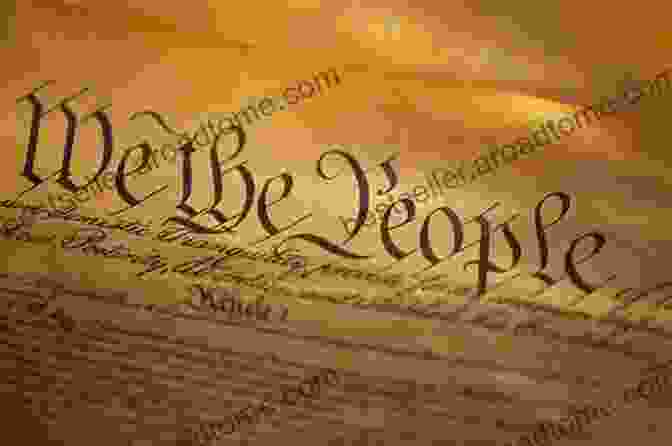
The Constitution of the United States, adopted in 1789, enshrines the principle of religious freedom as a cornerstone of American society. The First Amendment guarantees the free exercise of religion and prohibits the establishment of a state religion.
This constitutional protection reflects the Founders' deep understanding of the importance of religious liberty. They had firsthand experience with the persecution of religious minorities in Europe and were determined to prevent such injustices in the new nation.
The Constitution's provisions on religious freedom were not only a guarantee of individual rights but also a testament to the enduring influence of the Protestant faith on American society. The Founders believed that a nation founded on the principles of religious freedom would be a beacon of hope and a sanctuary for people of all faiths.
The Legacy of Faith in American History
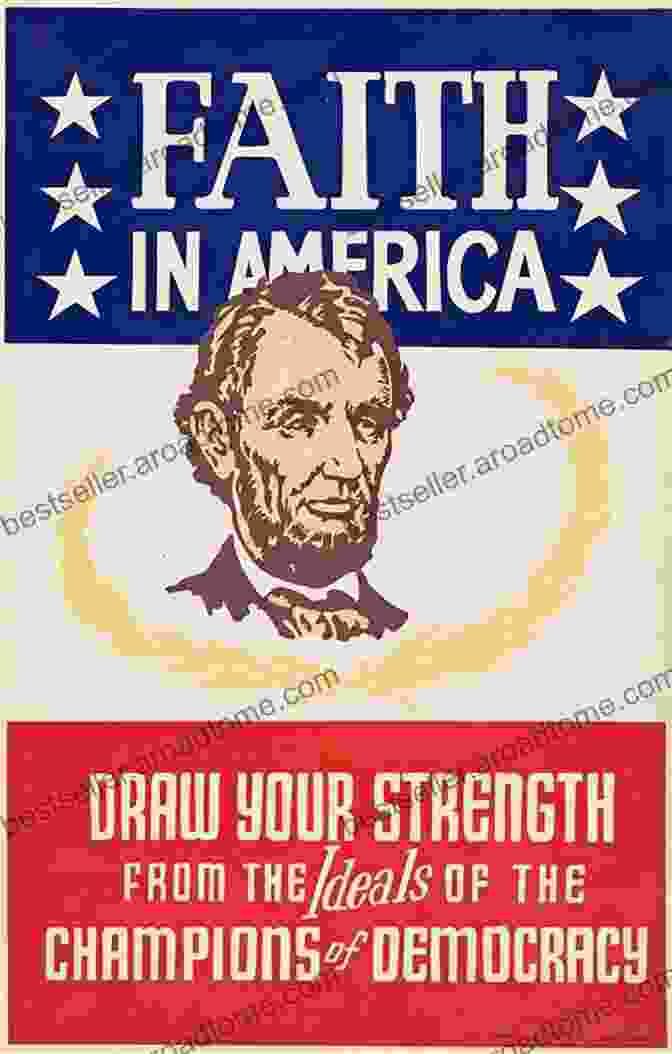
The legacy of faith in the United States is a complex and multifaceted one. Religious beliefs and practices have played a central role in shaping the nation's culture, politics, and social movements.
From the Puritans who established a theocracy in the Massachusetts Bay Colony to the evangelical preachers who inspired the Revolution, religious leaders have exerted a powerful influence on the course of American history. Faith has provided a moral compass for presidents, guided the work of social reformers, and sustained countless ordinary citizens through adversity.
Today, the United States remains a nation of faith. While the religious landscape has become more diverse over time, the legacy of the Founding Fathers' beliefs continues to resonate. The principle of religious freedom remains a fundamental pillar of American society, and faith continues to play a vital role in the lives of many Americans.
Faith played a transformative role in the birth of the American nation. The Puritan ethos, the Great Awakening, and the Founding Fathers' religious beliefs shaped the nation's political and social institutions, fostered a spirit of independence, and enshrined religious freedom as a cornerstone of American society.
Today, the legacy of faith in America continues to inspire and shape the nation. From the halls of government to the pulpits of churches, faith remains a powerful force for good, guiding the nation on its path towards a more just, equitable, and compassionate future.
By delving into the rich tapestry of faith that shaped the birth of the nation, we gain a deeper understanding of the values and ideals that have made America a beacon of hope and inspiration for generations.
4.8 out of 5
| Language | : | English |
| File size | : | 2336 KB |
| Text-to-Speech | : | Enabled |
| Screen Reader | : | Supported |
| Enhanced typesetting | : | Enabled |
| Word Wise | : | Enabled |
| Print length | : | 276 pages |
Do you want to contribute by writing guest posts on this blog?
Please contact us and send us a resume of previous articles that you have written.
 Book
Book Novel
Novel Page
Page Chapter
Chapter Text
Text Story
Story Genre
Genre Reader
Reader Library
Library Paperback
Paperback E-book
E-book Magazine
Magazine Newspaper
Newspaper Paragraph
Paragraph Sentence
Sentence Bookmark
Bookmark Shelf
Shelf Glossary
Glossary Bibliography
Bibliography Foreword
Foreword Preface
Preface Synopsis
Synopsis Annotation
Annotation Footnote
Footnote Manuscript
Manuscript Scroll
Scroll Codex
Codex Tome
Tome Bestseller
Bestseller Classics
Classics Library card
Library card Narrative
Narrative Biography
Biography Autobiography
Autobiography Memoir
Memoir Reference
Reference Encyclopedia
Encyclopedia Mark Graham
Mark Graham Arden B Andersen
Arden B Andersen Arthur Lydiard
Arthur Lydiard Annette Rochelle Aben
Annette Rochelle Aben Sophie Rigal Goulard
Sophie Rigal Goulard Milton T Walsh
Milton T Walsh Moojan Momen
Moojan Momen Douglas Wilson
Douglas Wilson Arthur Best
Arthur Best Christoffer Petersen
Christoffer Petersen Anna Zubkova
Anna Zubkova Annette Reeder
Annette Reeder Nigel French
Nigel French Arlen Feldman
Arlen Feldman Anne Edelstein
Anne Edelstein Melody Beattie
Melody Beattie Elena Miro
Elena Miro Marla Runyan
Marla Runyan Arthur Allen
Arthur Allen Anniversary Commemorative Edition Kindle...
Anniversary Commemorative Edition Kindle...
Light bulbAdvertise smarter! Our strategic ad space ensures maximum exposure. Reserve your spot today!

 Miguel NelsonGive Accept Help Protect Yourself: The Essential Guide to Navigating Life's...
Miguel NelsonGive Accept Help Protect Yourself: The Essential Guide to Navigating Life's...
 Gary ReedUnlock the Enigmatic World of Alan Turing: Dive into the Life and Legacy of a...
Gary ReedUnlock the Enigmatic World of Alan Turing: Dive into the Life and Legacy of a...
 Daniel KnightAspiring Filmmakers: Unlock the Secrets of Film and Video Budgeting with the...
Daniel KnightAspiring Filmmakers: Unlock the Secrets of Film and Video Budgeting with the... Simon MitchellFollow ·8.7k
Simon MitchellFollow ·8.7k Dallas TurnerFollow ·14.5k
Dallas TurnerFollow ·14.5k Mike HayesFollow ·13.9k
Mike HayesFollow ·13.9k Brenton CoxFollow ·6.5k
Brenton CoxFollow ·6.5k Felix CarterFollow ·13.9k
Felix CarterFollow ·13.9k Pablo NerudaFollow ·19.6k
Pablo NerudaFollow ·19.6k Floyd PowellFollow ·14.2k
Floyd PowellFollow ·14.2k Avery SimmonsFollow ·9.4k
Avery SimmonsFollow ·9.4k
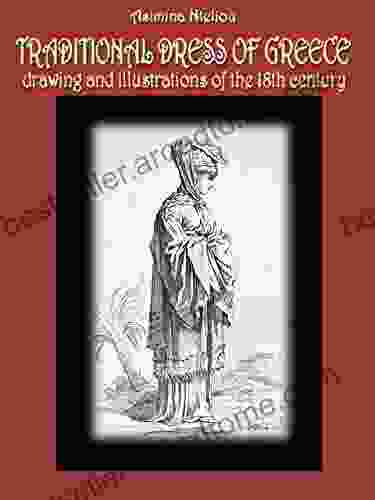
 Jeremy Cook
Jeremy CookDrawing and Illustrations of the 18th Century: A Journey...
Step into the...
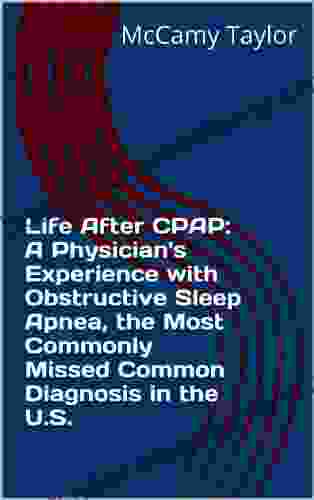
 Easton Powell
Easton PowellPhysician Experience With Obstructive Sleep Apnea: The...
Obstructive sleep apnea (OSA) is a common...

 Cruz Simmons
Cruz SimmonsUnlock Your Inner Healer: The Transformative Power of...
Are you ready to embark on a profound healing...
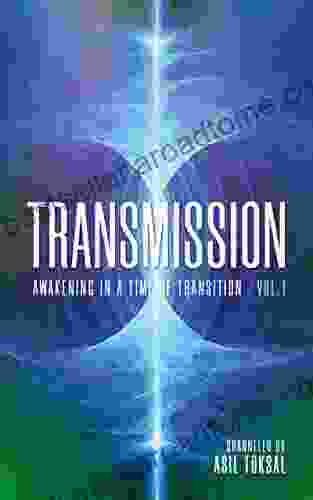
 Paulo Coelho
Paulo CoelhoTransmission Awakening In Time Of Transition Vol. 1: A...
Transmission Awakening...
4.8 out of 5
| Language | : | English |
| File size | : | 2336 KB |
| Text-to-Speech | : | Enabled |
| Screen Reader | : | Supported |
| Enhanced typesetting | : | Enabled |
| Word Wise | : | Enabled |
| Print length | : | 276 pages |


